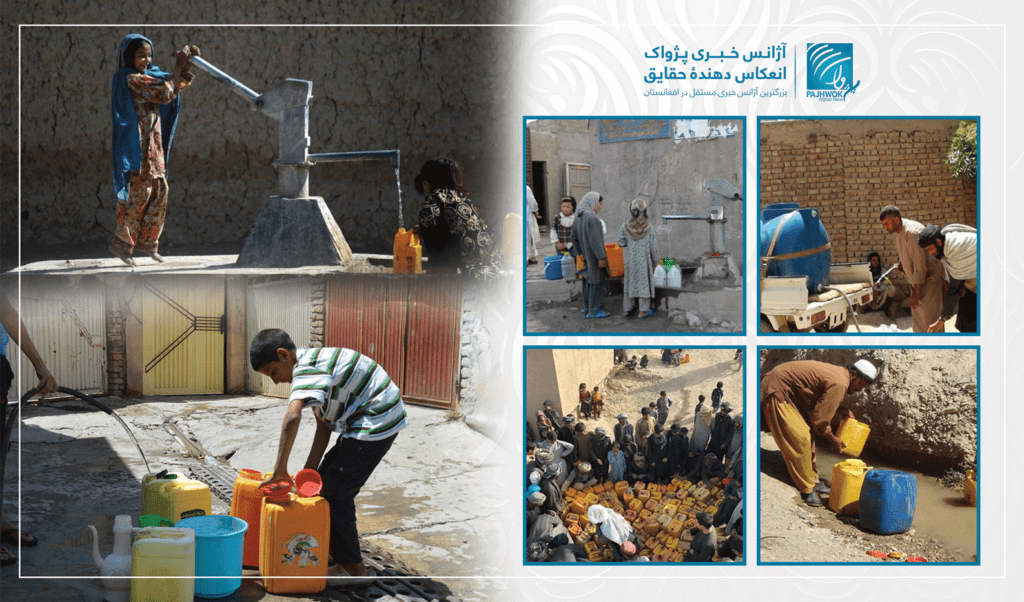KABUL (Pajhwok): Environment experts believe most of Afghanistan’s populous provinces, especially Kabul, are facing a severe shortage of potable water. It could lead to a disaster if the government does not take effective steps to address the challenge.
In most areas of the nation’s capital, people have to purchase water from tankers to meet their needs. Many capital residents also buy mineral water.
Ahmad Omaid Afzali, a researcher in earth sciences and natural resources at the Afghan Academy of Sciences, told Pajhwok Afghan News there was an imbalance in Kabul’s water resources and their consumption.
He said Kabul was facing a water shortage challenge, as most of wells had dried up. Even deep water wells had gone dry in some localities, he revealed.
Afzali cited global warming and climate change as principal causes of water shortages. He also called lack of a proper potable water plan, unplanned development of the city, concrete structures, pavement of streets, damage to the natural cycle of water provision, establishment of plants, car washing and improper use of agriculture water local factors in lowering the groundwater level in Kabul.
In his view, the following ways can be effective in dealing with the water crisis and controlling further fall of the groundwater level:
- Instead of cementing streets and backstreets, use stone blocks that have a vacuum and give power of water infiltration in the soil.
- Use artificial means to create gaps in which snow and rainwater is stored and penetrate the ground.
- Do not build settlements or townships near main areas where groundwater is stored.
- Allow surface water to flow into groundwater surface water being connected to urban networks.
- Complete the construction of dams in Kabul City such as Shatoot and Sha-wa-Arus projects and put into service. These dams can strengthen agriculture and preserve groundwater.
- Expansion of vegetable covering, which causes rainwater to be absorbed by the earth more than it evaporates.
Abdul Rahmani Latif, an environmental expert, said population growth, drought and the absence of an all-water supply network were the main causes of falling groundwater levels in Kabul and other major cities.
Research conducted by various institutions between 2011 and 2017 showed the average water level had dropped by one to nine metres in different parts of the city, he disclosed.
Akhtar Mohammad Nusrat, spokesman for the Ministry of Water and Energy, acknowledged that the entire country, especially Kabul, was facing a shortage of drinking water.
He attributed the scarcity of clean drinking water to drought, uncontrolled consumption and freezing of Afghanistan’s foreign assets. He said the ministry was unable to complete work on major projects, including Shah-Wa-Arus and Shahtoot dams.
Nusrat criticised the previous government for failing to improve the situation despite global assistance and availability of facilities.
He called on the people to avoid consuming water imprudently and dig up wells to store snow and rainwaters in yards or where doing do so was possible.
Nusrat said the ministry planned to prevent water shortages. However, the implementation of such plans and strategies required a lot of investment, he concluded.
sa/mud







GET IN TOUCH
NEWSLETTER
SUGGEST A STORY
PAJHWOK MOBILE APP